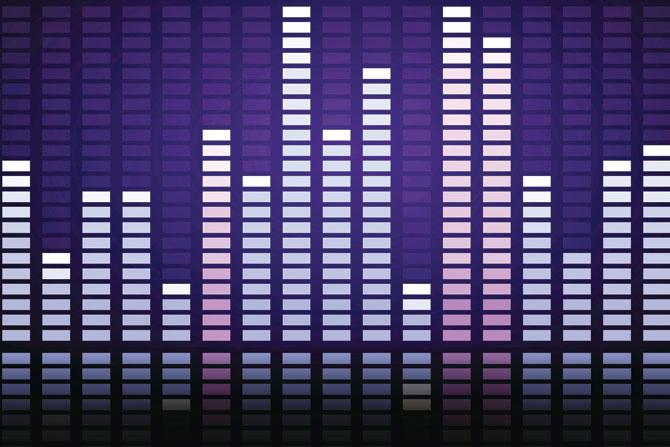As the average urban dweller gets increasingly plugged into music for hours on end, we check the controls to gauge how much is good, does it help the human mind, and the signs to look out for when things get too loud

How many times have you heard someone say, "I am very stressed out; I want to listen to music?" Most of us choose to listen to different genres of music, depending on our mood. Scientifically, listening to music stimulates the production of dopamine in the brain. The brain reacts similarly to the sight of delicious food or anything that looks/sounds interesting.
ADVERTISEMENT
When a person listens to good music, more blood flows to these parts and to the nerve ends, which release this chemical. Good music relaxes and opens up the endothelium of blood vessels, while listening to bad music closes the endothelium, leading to stress and mental fatigue.
Music for the soul
Kamakshi and Vishala Khurana, who founded a company called The Sound Space, which practices music therapy, believe that music has a miraculous power to heal and that sound has the capacity to influence every aspect of a human being from the time of conception. They conduct specialised workshops including sound for better concentration, music therapy and an easy and fun filled introduction to Indian Classical music for children.
"Music should constitute a major part of our lives. Listening to the right music has innumerable benefits such as lowering stress levels, reducing depression and anxiety and maintaining a happy, balanced and calm home/office/travel environment. There's nothing like too much music. Very loud music can adversely affect the ears. But music only benefits our brain by releasing endorphins, which elevates one's mood. It is in fact a wonderful stimulant," says Vishala Khurana, co-founder, Sound Space.
Ashutosh Phatak, founder and teacher, True School Of Music asserts, "Life is full of music and there's no better way to live it. It doesn't have to mean sitting down and consuming albums, but there's music everywhere — in the rhythm of a local train's movement, or in the sound of the waves at high tide. People tend to watch more music than listen to it these days." He feels that if more people listened to music all the time, they would be calmer and better disposed to handle stress.
What's your genre?
"The kind of music one listens to determines one's reaction to it. No genre is harmful, but there is a preferable choice in different situations. For instance, studies have found that percussion stimulates the left side of the brain, so if one were solving Mathematics problems, or having to reach a logical conclusion, that music would be beneficial. Similarly, for an artiste, instrumental music or Soul would work better," explains Khurana.
According to Dr Shaan Manohar, ENT specialist, Nanavati Hospital, "Japan has done a study on applying music to water as it freezes and check the patterns of crystals formed. It was concluded that loud drumbeats and music with violent poetry tend to have a destructive effect on the crystals versus Classical music, soft love tracks or devotional lyrics had an enhancing effect on the crystal formation.
Loud drumbeats are also known to interfere with the pace of the heart in the very young and the elderly. It is a known fact that listening to Classical music enhances the mathematical ability of a growing child. Also, chanting helps release endorphins in the body creating a calm person, full of positive energy."
Ask the doctor
"To protect against hearing damage, one's 24-hour noise exposure at the ear should not exceed 70 dB," Dr Manohar tells us. According to Dr Dipak Desai, Consultant ENT, Wockhardt Hospital, Mumbai Central, one should keep the volume at 60% of the total volume of a particular device.
"Louder than that can cause damage. It is safe to listen to music continuously for an hour only; post that one should take a short break before resuming," he shares. "Pediatricians don't recommend headphones for children. For starters, they don't standardise the volume, so some songs may jump out and be louder than others.
This apart, headphones tend to cut out ambient sound and external stimuli. This reduces awareness among children who will only end up listening to the music. Yet, music is a vital developmental tool for kids. It is preferable to listen to music via speakers of a music system," advises Phatak.
What's on your playlist?
> Blues can calm the nerves and slow down the heart rate
> Rock and Punk can boost your mood levels. It can also give you an adrenaline and energy boost.
> Reggae has been found to actually help with anger issues. It is also believed that this genre calms the heart and brings it to the healthy rate.
> Classical music is played to steady the breath, uplift the mood and has the power to calm an individual down. This kind of music has a beneficial effect on the brain and helps to coordinate left and right brain activity.
—Kamakshi and Vishala Khurana, Sound Space
 Subscribe today by clicking the link and stay updated with the latest news!" Click here!
Subscribe today by clicking the link and stay updated with the latest news!" Click here!






